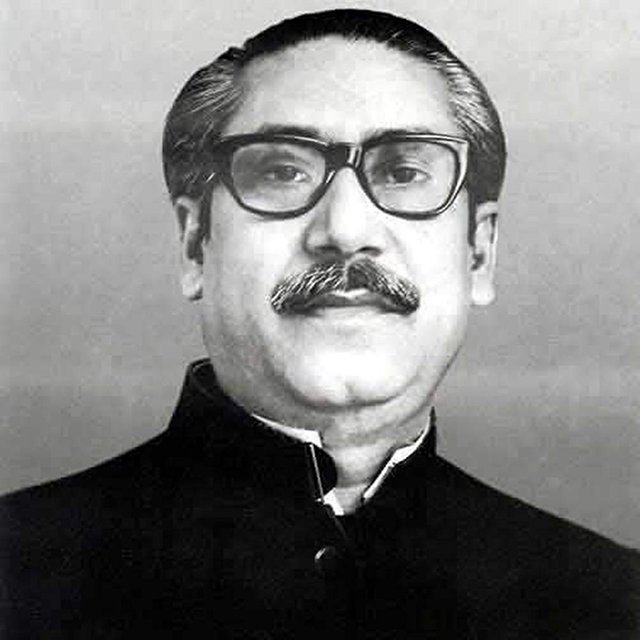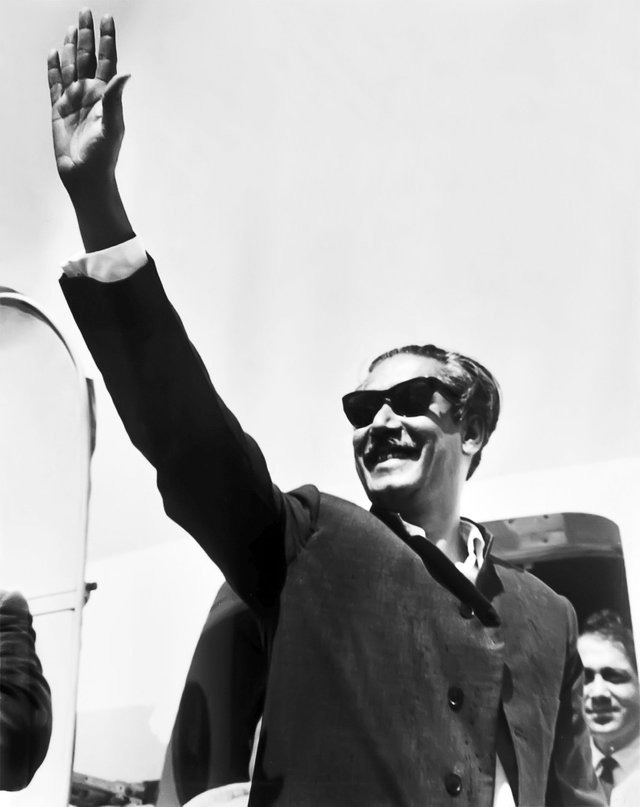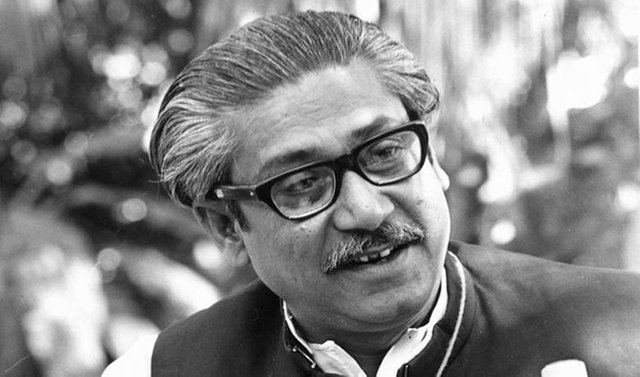Bangladesh is a country. Part-5.
Fall of the Bangabandhu, 1972—75.
The nation Mujib came back to was scarred by common war. The quantity of individuals murdered, assaulted, or dislodged could be just dubiously assessed. The undertaking of financial recovery, particularly the quick objective of sustenance conveyance to an eager people, was disappointed by disabled correspondences and transportation frameworks. The new country confronted numerous other apparently inconceivable issues hindering its reproduction. A standout amongst the most glaring was the breakdown of peace. In the wake of the war of autonomy, various groups of guerrillas still wandered the farmland, completely furnished and outside the control of the legislature. Numerous warriors of the Mukti Bahini joined the Bangladesh Army and consequently could legitimately hold their weapons, yet numerous others overlooked Mujib's request that they surrender their weapons. Some furnished gatherings went rogue and set up domains under their own purview. In time these difficulties to focal specialist added to Mujib's suspension of majority rules system.
Mujib had an unfailing connection to the individuals who took an interest in the battle for freedom. He demonstrated bias toward those confidants by giving them arrangements to the common government and particularly the military. This silly practice demonstrated lethal. Mujib precluded himself the ability from securing numerous best level officers once in the past utilized by the Pakistan Civil Service. Bengali military officers who did not figure out how to escape from West Pakistan amid the war and the individuals who stayed at their posts in East Pakistan were victimized all through the Mujib years. The "repatriates," who constituted about portion of the armed force, were denied advancements or decision posts; officers were relegated to functionless occupations as "officers on uncommon obligation." Schooled in the British convention, most put stock in the goals of military polished skill; to them the possibility of serving an individual as opposed to a foundation was indefensible. Contradicted to the repatriates were the flexibility warriors, the greater part of whom offered their unquestioning help for Mujib and consequently were supported by him. Few them, related with the radical Jatiyo Samajtantrik Dal (National Socialist Party), even recommended that officers be chosen to their posts in a "people's armed force." From the positions of the opportunity contenders, Mujib built up the Jatiyo Rakkhi Bahini (National Defense Force), whose individuals promised to Mujib and progressed toward becoming, in actuality, his private armed force to which benefits and difficult to-get wares were luxuriously given (see Postindependence Period, ch. 5).

Notwithstanding significant outside guide, for the most part from India and the Soviet Union, sustenance supplies were rare, and there was uncontrolled debasement and dark marketeering. This circumstance provoked Mujib to issue a notice against hoarders and bootleggers. Mujib went down his danger by propelling a mass drive against hoarders and dealers, sponsored by the Jatiyo Rakkhi Bahini. The circumstance just briefly floated the honest to goodness economy of the nation, as storing, dark marketeering, and debasement in high workplaces proceeded and turned into the signs of the Mujib administration.
Mujib's financial arrangements likewise straightforwardly added to his nation's monetary mayhem. His extensive scale nationalization of Bangladeshi assembling and exchanging ventures and global exchanging items choked Bangladesh enterprise in its early stages. The authorized utilization of the Bangla dialect as a swap for English at all levels of government and instruction was yet another strategy that expanded Bangladesh's disengagement from the flow of the world economy.
Most Bangadeshis still respected the Bangabandhu at the season of the main national races held in 1973. Mujib was guaranteed of triumph, and the Awami League won 282 out of 289 specifically challenged seats. After the decision, the financial and security circumstances started to crumble quickly, and Mujib's prevalence endured further because of what numerous Bangladeshis came to see as his nearby union with India. Mujib's tyrant identity and his paternalistic proclamations to "my nation" and "my kin" were not adequate to redirect the general population's consideration from the hopeless states of the nation. Across the board flooding and starvation made serious hardship, irritated by developing law-andorder issues.

In January 1975, the Constitution was revised to make Mujib president for a long time and to give him full official forces. The following month, in a move that wiped out all resistance political gatherings, Mujib broadcasted Bangladesh a one-party state, viably nullifying the parliamentary framework. He renamed the Awami League the Bangladesh Krishak Sramik Awami League (Bangladesh Peasants, Workers, and People's League) and required all non military personnel government faculty to join the gathering. The key rights listed in the Constitution stopped to be watched, and Bangladesh, in its outset, was changed into an individual autocracy.
On the morning of August 15, 1975, Mujib and a few individuals from his family were killed in an upset built by a gathering of youthful armed force officers, a large portion of whom were majors. A portion of the officers in the "majors' plot" had an individual grudge against Mujib, having prior been expelled from the armed force. In a more extensive sense, the estranged officers and the few hundred troops they drove spoke to the grievances of the experts in the military over their subordination to the Jatiyo Rakkhi Bahini and Mujib's lack of concern to net defilement by his political subordinates and relatives. When of his death, Mujib's prominence had fallen abruptly, and his passing was bemoaned by shockingly few.
The conciliatory status of Bangladesh changed medium-term. Multi day after Mujib's death President Bhutto of Pakistan declared that his nation would promptly perceive the new administration and offered an endowment of 50,000 tons of rice notwithstanding a liberal endowment of dress. India, notwithstanding, under the govern of Indira Gandhi, endured a mishap in its relations with Bangladesh. The finish of the Mujib time frame by and by conveyed genuine reciprocal contrasts to the fore. Numerous Bangladeshis, albeit appreciative for India's assistance against Pakistan amid the battle for autonomy, thought Indian troops had waited too long after the Pakistan Army was vanquished. Mujibist dissenters who kept on opposing focal specialist discovered haven in India (see Foreign Policy, ch. 4).

It was a nice post
Downvoting a post can decrease pending rewards and make it less visible. Common reasons:
Submit
tnx
Downvoting a post can decrease pending rewards and make it less visible. Common reasons:
Submit
Independent and time is great wealth for human
Downvoting a post can decrease pending rewards and make it less visible. Common reasons:
Submit
yup
Downvoting a post can decrease pending rewards and make it less visible. Common reasons:
Submit
What a title "Bangladesh is a country".
Downvoting a post can decrease pending rewards and make it less visible. Common reasons:
Submit
Congratulations! Your post has been selected for #weekly-curationlounge. Be present on Steem Tuner Voice Thursday 10 pm on Bangladesh time to present your article.
Downvoting a post can decrease pending rewards and make it less visible. Common reasons:
Submit